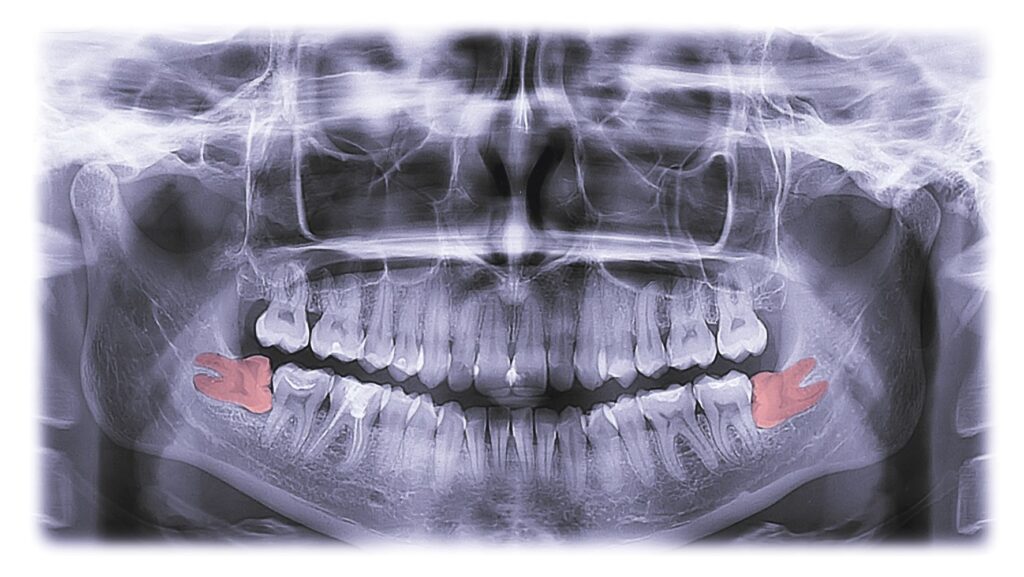
If you’re a teen or young adult and have recently developed a sore jaw or aches in your teeth, face, or ears, you might be dealing with wisdom teeth. These molars appear years after your other adult teeth have grown in and tend to cause problems when they arrive. Often, the best way to preserve your dental health is to remove them before they become troublesome.
However, if you’ve never experienced any issues with wisdom teeth, you might wonder why. The truth is, although most people have them, not everyone does. Continue reading to learn more about it!
What Are Wisdom Teeth?
These late-arrivals typically show up between the ages of about 17 to 25, but it can vary slightly from person to person. It’s believed that ancient humans evolved them out of necessity. They subsisted on a rough diet of raw meat, nuts, berries, and other fibrous plants. Because they didn’t cook food, use utensils, or have access to dentists, their molars likely sustained plenty of damage by the time they reached adulthood. They likely needed additional teeth to compensate for any that had suffered decay or disease or had been dislodged.
Today, they’re no longer necessary for our survival and are considered a vestigial feature.
Does Everyone Have Wisdom Teeth?
Wisdom teeth are extracted so frequently that many consider it a rite of passage from childhood into adulthood, but some lucky individuals might never have to worry about undergoing this procedure. Most people have four of these molars, one for each quadrant of their mouth. However, according to the Dental Research Journal, an estimated 5% to 37% of people are missing one or more of them.
Keep in mind, though, that wisdom teeth often become trapped in the jawbone and cannot fully erupt. You might assume you don’t have any because you can’t see them, but your dentist can take X-rays to determine for certain whether they’re present.
Why Doesn’t Everyone Have All Four Wisdom Teeth?
Although the exact reason for this is uncertain, genetics seem to play a significant role. You’re likely to be missing one or more wisdom teeth if your parents do. This could be partly because of the process of evolution.
Wisdom teeth frequently become trapped in the jawbone and become infected or impacted. Not only is this incredibly painful, but the disease can spread to your jawbone and erode it or enter your bloodstream and contribute to other health concerns, like heart problems. It’s possible that ancient peoples who suffered from wisdom tooth problems were less likely to reproduce, so evolution began to favor those without all four of them.
If you’re unsure whether your toothache is due to wisdom teeth, the best way to find out is to schedule an appointment with your dentist!
About the Author
Dr. Dhavalkumar Rana has 20+ years of experience helping people of all ages build and maintain their healthiest and most beautiful smiles. He earned his dental doctorate from New York University and is committed to ongoing education to stay on top of the latest technology and techniques. He offers a full array of services to meet all your family’s needs at one convenient location, including wisdom teeth extractions. He combines a caring approach with state-of-the-art equipment to prioritize patient comfort while providing accurate treatment results. You can request an appointment on the website or call (469) 899-7288.
